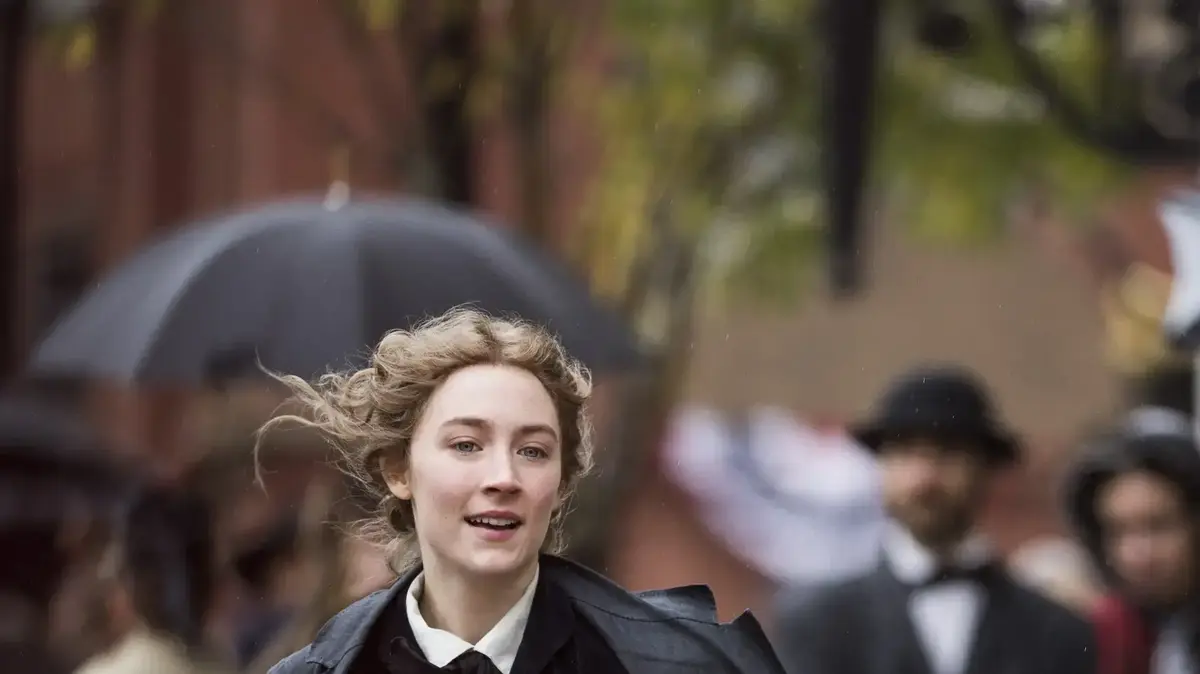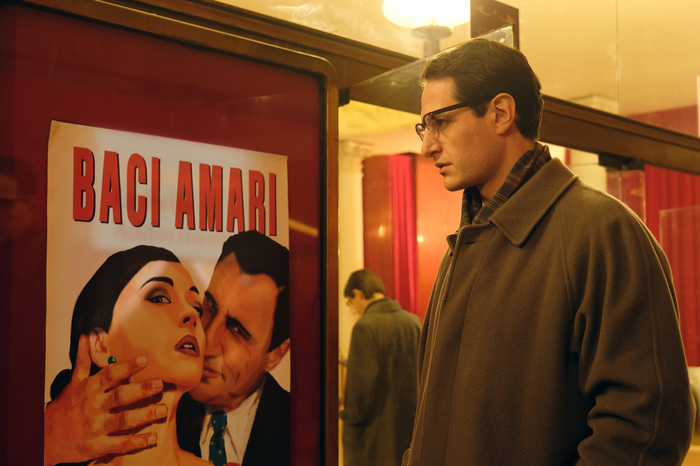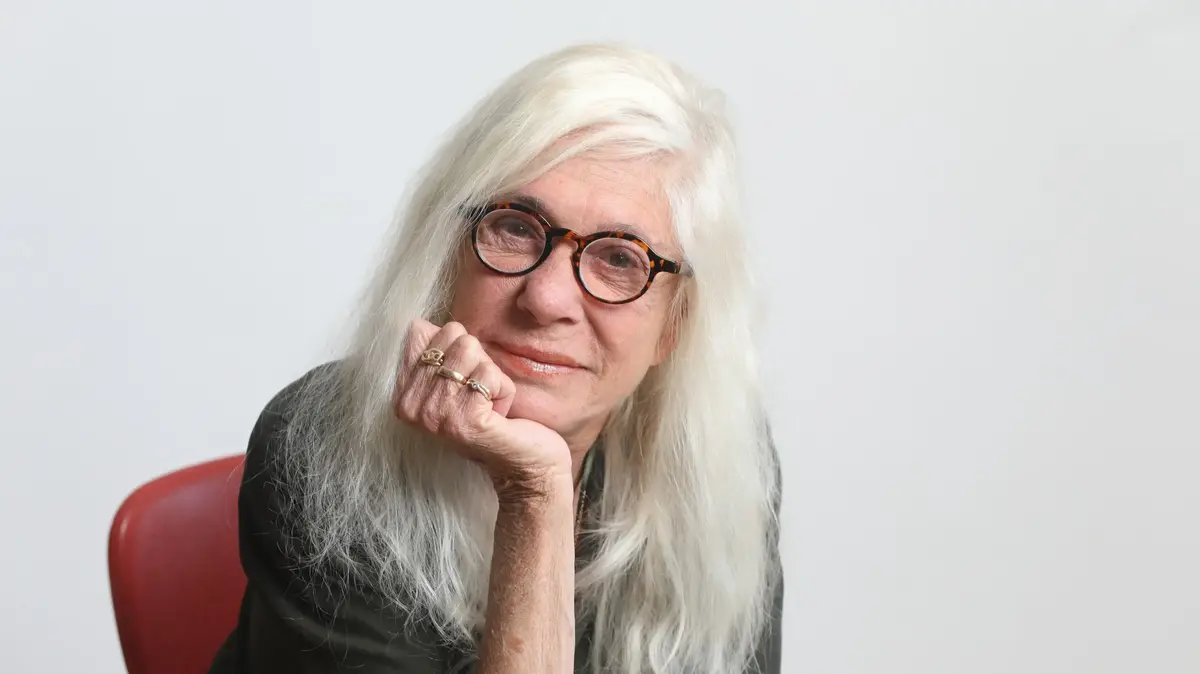The women born again
Photo: PR, Film Forum
- culture
- Theater
- Movie review
There have been many adaptations for Little Women already, but there has yet to be an adaptation like that of Greta Gerwig, starring Sircha Ronan and the wonderful Florence Pio. It's not perfect, and not always exciting, but it revives the classics in such a smart, witty and relevant way that you can understand why the whole world is talking about it
Avner Shavit
23/01/2020Louisa May Alcott's "Little Women" first came out in 1868. It is an exemplary book in which each line is more wonderful than the previous one, and it is also one of the most beloved, influential and timeless literary classics of all time. About a week and a half ago, another milestone was added to it: from now on, this is one of the only books ever to have been the basis for two Oscar-nominated films in the best film category.
The first processing to be won came in 1933. The second - in the last year. He arrived in the United States at Christmas and with us this past weekend, and will compete for the statuette at a ceremony to be held next month. In addition to nominating in the best film category, this version is also nominated in five other categories, including the acting and script, and it must be said before that it deserves these pageants.
The first cinematic reincarnation of the book came as early as the silent cinema days, and in the middle of the two Oscar-nominated adaptations we envisioned countless other versions and not always successful ones, including a Japanese anime series. As written in the American and British media, a new adaptation of Louisa Mae Alcott's classics is not an event but a ritual, and every generation accepts it in a way that suits it and the times it lives. Thus, in its latest incarnation, "little women" stays away from the melodramatic and / or familial, soap and romantic tones that characterized many of the previous adaptations, focusing instead on the questions most relevant to our day, most notably the place of woman in society.
Sony Pictures EntertainmentThis is also the most complex processing done to date. Greta Gervig, who wrote and directed the script, has taken several steps that differentiate her version from all her previous ones, making her much deeper and multi-layered.
The frame story remains similar. "Little Women," as you recall, takes place in and after the Massachusetts Civil War, and follows the four daughters of the March family, each of whom has a different character and other dreams - Margaret (Emma Watson), the first and first woman to become a man's wife; Joe (Sircha Ronan), the rebellious tomboy, who writes and dreams of a literary career; Beth, the best soul in the family; And Amy, the old girl, who also has artistic ambitions, but in the field of painting.
The book is published in two volumes and chronologically advanced, as were the previous adaptations, but Grevig's film constantly moves between two timelines, creating a dialogue between the heroines' and their present's past to illustrate their development and to emphasize how circles in their lives close, sometimes ironically or tragically, Sometimes in a way that has perfection and redemption.
In addition, "Little Women" is not only an adaptation to the book, but much more than that - over time it is revealed that this is also a film that describes the writing and production process of "Little Women," and also a kind of autobiography of the author. If that's not enough, Gerwig adds another layer. Joe becomes the character of Alcott and maybe her alter ego herself. The dialogue between her and her publisher, who is of course a white man with a certain set of expectations about what women are supposed to write and want to read, becomes an allegory about the relationship between creative women and power-makers and decision-makers. Be they publishers or studio executives, they were and still are mostly men.
Wanted. From "Little Women" (Photo: PR)
Little Women (Photo: Film Forum, PR)
To my mind, the movie has some other key ideas. First of all, his heroines experience double oppression - both because they are women and because they are family-free. In the time they lived, this meant that their economic future depended on the man with whom they would marry. And so, every choice the characters make, every step of their way, however personal, always has a dramatic economic significance that Grewig emphasizes. This element also existed in the earlier and exemplary films she was involved in - from "Frances Ha" and "Mistress America" (as screenwriter and actress) to "Lady Bird" (screenwriter and director). They, too, broke the taboo of American culture around money, and dealt with middle-class characters who were not hungry for bread, but did not have the privilege of doing things just for the soul.
In addition, Grewig anticipates two conflicts. Joe March wants to be an independent woman and refuses to marry and bring children into the world only because society expects her to do so, but on the other hand - it is difficult for her with the loneliness that accompanies independence.
In a similar context, Gerwig tackles the biggest question left by the book. His heroine is rebellious, liberating and breaking convention throughout his life, but the ending that Alcott has chosen is the opposite. How can it be? Why did she do it? To what extent is there a concession and compromise here? The solution that the film finds is witty, brilliant, ambiguous and thought provoking, and so the whole result.
Two unnecessary sisters out of four. From "Little Women" (Photo: PR)
Little Women (Photo: Film Forum, PR)
At times it seems that more than adaptation to "little women" or even more than a film, it is a dissertation written on the literary classics. As such, it deserves a score, but in addition to its academic qualities, there are cinematic degrees here as well. Gerwig is best able to execute her witty script with beautiful brushstrokes. Also successful is her collaboration with the excellent craftsmen on her side, led by photographer Iorik La Sue and composer Alexander Despella - and above all, the casting stands.
Sircha Ronan gets into the skin of Joe March, one of the most iconic and inspirational literary figures ever, and does so with such momentum that we for a moment don't wonder if she deserves to be in her shoes. Alcott seemed to be proud of herself. Florence Pio, who broke into Lady Macbeth and Midsomer, again justifies her status as one of the most joyous discoveries of recent years. She takes on the character of Amy, who was not necessarily dominant throughout the book, making her more meaningful and powerful than ever.
Both actresses joined the Oscar nominee quintet. Pooh in the sub-actress category, in what is her first candidacy. Ronan in the lead actress category, in what is already her fifth nomination, although she was born a few months before Rabin's murder. How did such a young star reach such a feat in such a short period of time? Watching "little women" provides an overwhelming answer.
The cast and actress team includes another impressive set of names. Meryl Streep, but who, embodies the matron known as Aunt March. Laura Dern, who will receive an Oscar for her appearance in "Marriage Story," is injured here as the mother of the family. Tracy Lets, who also excelled at Ford vs. Ferrari this year, is most entertaining as Joe's publisher. Timothy Shalama, for his part, embodies Lori, the soulmate of the four sisters, who falls in love with one but marries another. And the job is so fitting for him that it looks like he was born for him. More surprising casting is that of Louis Garrell, the Frenchman who plays the teacher with whom Joe develops a relationship, which in the book is described as not very good looking German.
Were born to the post. From "Little Women" (Photo: PR)
Little Women (Photo: Film Forum, PR)
Not everything in the movie is perfect. No coincidence we only talked about two of the March sisters. Meg does play a star of Emma Watson's size, but she is a pale figure who leaves no mark. A daughter, played by promising Eliza Scanlan, is responsible for some of the beautiful and exciting moments in the book, but this movie looks like nothing more than a setting. Another problem: The transitions between the times do turn out to be wise and ultimately correct, but these disruptions make it difficult to create an emotional sequence during watching - and most of the time, "little women" is not exciting.
Only in the final act, does the film get as exciting as it is brilliant. His extension manages to put whipped cream and cherries on the layer cake that Grewig has built thoroughly, justifying everything that happened earlier and shining it in a different light. She is also a masterpiece of using the cinematic expressions, the editorial, the music and the close-up face of Sircha Ronan's expressive face, which blend in with wonderful harmony.
This crescendo also draws the audience with a sense of transcendence, making the film an experience that is not only intellectual but also emotional. Along with the relevance of the temporal questions that arise here, it fills this period drama with life and vitality, and although it occurs in the 19th century, it is easy to believe that the heroines are contemporary. Grevig's adaptation not only allows us to predict how "little women" were born, but also how they were reborn.
No wonder she has five Oscar nominations. Sircha Ronan from "Little Women" (Photo: PR)
Little Women (Photo: Film Forum, PR)



/cloudfront-eu-central-1.images.arcpublishing.com/prisa/4QBBQZRJOFAWLKWBHY4E4XP5XE.jpg)











